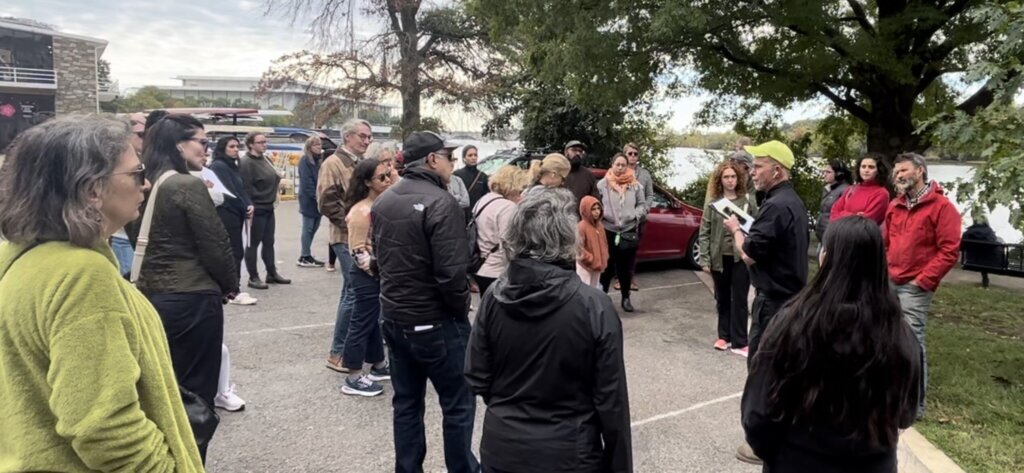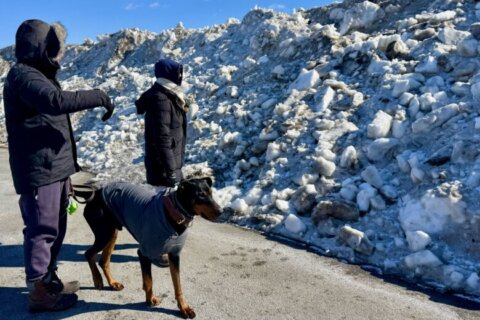
Before Europeans arrived, the area that’s now known as the D.C. region had plenty of natural resources and was able to support Native Americans.
Their experiences in the D.C. area were highlighted this Indigenous Peoples Day along the Potomac River near the Kennedy Center.
Ed Ingebretsen, professor emeritus at Georgetown University, hosted a walking lecture Monday, detailing specific areas and landmarks that were historically significant.
“Memory is respect, and I’m trying to develop memory,” Ingebretsen said.
The lecture, which attracted a small crowd of people who listened to Ingebretsen’s insights, came on a day when Native American people celebrate their centuries-long history of resilience.
“I wanted to engage with the history and culture of indigenous people, specifically the Nacotchtank people of D.C.,” said Maya Levine, one of the people who went to the lecture.
The village of Nacotchtank is where Anacostia got its name.
Those who lived there were called “Anacostans,” and they lived along the southeast side of the Anacostia River in the area between modern day’s Bolling Air Force Base and Anacostia Park.
According to the National Park Service, “there is evidence that the strategic location of the confluence of the Anacostia and Potomac Rivers, tidewater and piedmont, made the area a major crossroads and trading center for coastal and interior tribes.”
“I was excited that it was interactive and not just sitting in a classroom learning about it,” Levine said.
Ingebretsen called the lecture “street learning.”
“There’s a difference between learning it from a book and walking to the waterfront and stepping on the ground and seeing where people lived and moved,” Ingebretsen said.
Two years ago, President Joe Biden officially commemorated Indigenous Peoples Day.
An increasing number of states and cities have also recognized it — pivoting from a day long rooted in the celebration of explorer Christopher Columbus to one focused on the people whose lives and culture were forever changed by colonialism.
The Associated Press contributed to this report.








